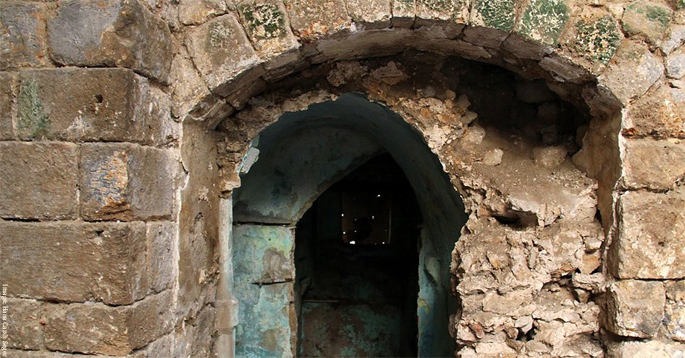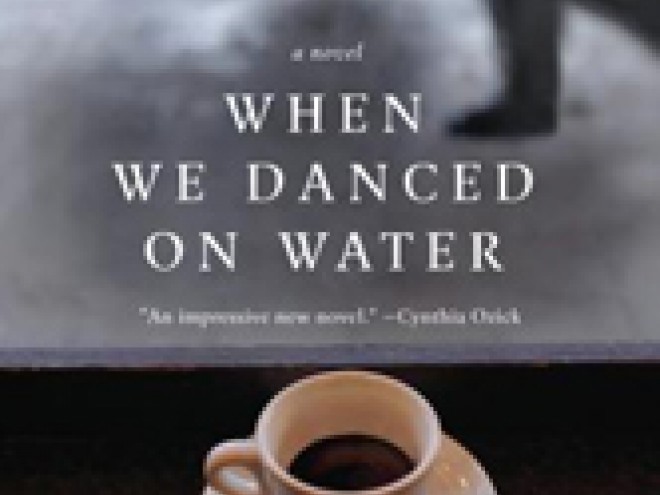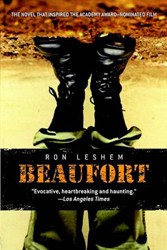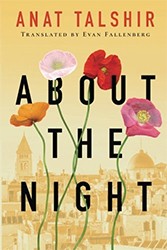
My father was a businessman in Cleveland, Ohio. He and I loved each other deeply, even if we didn’t see eye-to-eye on so many things. Here is a typical exchange I remember quite vividly:
Me: Dad, the unexamined life is not worth living! (I had recently discovered the ancient Greeks, or more likely, I’d read a novel in which someone was quoting them.)
Dad: Who says? (He was late for golf.)
I sometimes resented, sometime envied, his easy-going attitude, while I seemed to add drama and complications to my life wherever possible. At the top of the drama-and-complications list has to be my move to Israel exactly thirty years ago.
Since then I’ve raised a family here, had several careers and a number of jobs, written and published a few novels, translated some of Israel’s great modern literature, and taught hundreds — oh, thousands by now — of students young and old. It’s been immensely fulfilling, sometimes frustrating, incessantly interesting and has provided a treasure trove of experiences for the writer in me.
My life and career in Israel have put me in touch with many remarkable people in the world of culture and the arts, something that has made me feel like an integral part of Israeli society, instead of an outsider. Yet one thing has persistently bothered me for a good chunk of my thirty years in Israel: the feeling that I am unable to do a thing about the country’s biggest stumbling block, the failure to achieve peace, or to become that “light unto the nations” that so many people expected would happen. I ache in sympathy with the way this beautiful, troubled nation makes such remarkable progress in certain spheres while getting nowhere in that one. I am mortified by my own ability to look away from the problem.
Then two years ago I purchased a decrepit, centuries-old Ottoman ruin in the predominantly Muslim Old City of Acre (Akko) on Israel’s northern seacoast. I had vague notions of turning it into an apartment for myself, a studio for my literary activities, and an extra apartment I could rent out. For the past year I have been engaged in a massive restoration and renovation project and have been watching the miracle of a palace arising from the ruins. What’s more, the purpose of the building has been evolving as I had the amazing experience of being welcomed by my neighbors and watching the workers — most of whom are local — pour their talents and much more (I’d cautiously call it love) into every stone and crevice.
In the end, this crazy dream has turned into Arabesque: An Arts & Residency Center in Old Acre (Akko), due to open in the coming weeks. My son Micha and our neighbor Maharan will be co-directors; Maharan’s mother, Khayet, is the house mother (em bayit, a term I love, as though she gathers the whole building in her arms and coddles it). And I am its artistic director. To me this is the embodiment of what could and should be in the Middle East: a place where all are welcome, all cultures and languages and religions are respected, all sides have a voice and a role, and art rules.
There have been obstacles along the way; there are more in store for us. There have been days when I’ve asked myself why I needed this. But I’m willing to wager that even with all the drama and complications, all the soul-searching and questioning that have gone into this project, my father would have been proud and pleased at what his son and grandson are trying to achieve. Inshallah, as we say in these parts, that we’ll succeed.
Evan Fallenberg is an award-winning novelist and translator and teaches at Bar-Ilan University. For more information about Arabesque: An Arts & Residency Center in Old Acre, please visit the project’s IndieGoGo site here.
Related Content:
- Martin Fletcher: The Best Part of Traveling
- Dani Shapiro: Jewish Church
- Writers’ Essays on Israel
Evan Fallenberg is an author and translator of films, plays, and books, including Meir Shalev’s A Pigeon and a Boy, winner of the 2007 National Jewish Book Award for fiction. He is the recipient of the American Library Association Barbara Gittings Stonewall Book Award for Literature, the Edmund White Award for Debut Fiction, and other awards in the United States and Israel. In addition to writing and translating, he teaches literary translation and fiction at Bar-Ilan University in Tel Aviv and is faculty co-director of Vermont College of Fine Arts International MFA in Creative Writing & Literary Translation. He is a graduate of Georgetown University and serves as an adviser to the Sami Rohr Prize for Jewish Literature. He lives in Acre, Israel, where he owns a boutique hotel and arts residency center.



